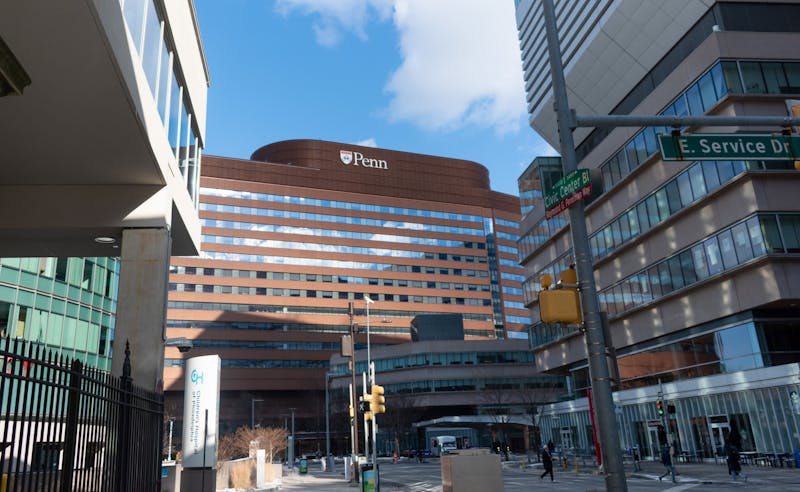In light of the holiday season, Bon Appétit is looking to continue making food conservation a top priority.
Although it caters to many students, Bon Appétit — the company that runs Penn’s dining halls — does not make food in bulk, according to Stephen Scardina, the resident district manager of Bon Appétit. Instead, it seeks to minimize leftover food in dining halls and donate meals to the community at least once a month.
To minimize leftovers at the end of each day, Bon Appétit uses the “just in time component cooking” model, Scardina wrote in an email.
The model requires chefs to prepare the ingredients necessary to make dishes in advance — but only use those ingredients for cooking if food supply runs out during meal times. When extra, uncooked ingredients are left over, they may be reused in later recipes according to the guidelines recommended by the United States Department of Health and Human Services, Scardina added.
“Bon Appétit is committed to both minimizing food waste through our kitchen practices as well as supporting efforts to curb hunger in the local community,” Scardina wrote.
Bon Appétit also donates kosher food to the weekly Hillel soup kitchen, as well as to a branch of the Sunday Breakfast Association — an organization dedicated to serving and feeding the homeless — in collaboration with the on-campus group More Than Pennies.
MTP, which began in 2009, collects meal swipes from students at the beginning of each semester to donate food to the Sunday Breakfast Association branch near 13th and Vine streets. Those meal swipes are, in turn, exchanged for food for the homeless.
When it was initially founded, MTP would collect meal swipes from students and, with Bon Appétit’s cooperation, box and donate to-go meals to the homeless throughout Center City.
Since then, the organization’s model has evolved. MTP still collects meal swipes from students at the beginning of each semester to run its project, but now it serves homeless shelters once a month.
As part of a system implemented in 2010, MTP volunteers and Bon Appétit chefs now volunteer their time monthly to prepare and serve fresh food to the homeless at the Sunday Breakfast Association.
In the future, MTP hopes to expand its volunteer base and work with other student groups to further the impact it has on the community, Wharton junior and MTP President Brianna Mariolle said.
Mariolle credited Bon Appétit for its help, calling its staff “amazing” and “really easy to work with.” She added that the volunteer chefs who prepare meals for the shelter are enthusiastic about serving.
In addition to their monthly efforts, Bon Appétit and MTP also organize a food drop-off before long holiday breaks, during which dining halls donate perishable items to the Sunday Breakfast Association. Donations usually consist of unopened food products that would spoil over the holidays, including milk, fresh produce and unused baked products, Scardina wrote.
College freshman Ben Parry does not think leftover food in dining halls is a problem because of programs like MTP that donate food to the community.
However, he does believe that Bon Appétit venues which accept dining dollars and stock organic food incur “a lot more wastage” because their products “cannot be left for over a day.”
The Daily Pennsylvanian is an independent, student-run newspaper. Please consider making a donation to support the coverage that shapes the University. Your generosity ensures a future of strong journalism at Penn.
DonatePlease note All comments are eligible for publication in The Daily Pennsylvanian.







